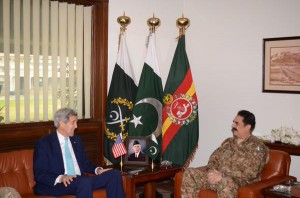Wednesday: Not the Shape
I know that the spades are the swords of a soldier
I know that the clubs are weapons of war
I know that diamonds mean money for this art
But that’s not the shape of my heart
— excerpt, Shape of My Heart by Sting and Dominic Miller, 1993
After reading deeply about so many people suffering, I’m falling back on the equivalent of musical comfort food. A double helping as this Sting song is one of my favorites, performed here by some of my favorite musicians.
Suffer the little children
- U.N. Commission of Inquiry reports Yazidis erased by ISIS (OHCHR) — The UN’s independent international Commission of Inquiry on the Syrian Arab Republic published “They Came to Destroy: ISIS Crimes Against the Yazidis” on June 16 but media outlets are only now reporting on the inquiry’s findings. ISIS has violated the 1948 Genocide Convention, by
“ISIS has sought to erase the Yazidis through killings; sexual slavery, enslavement, torture and inhuman and degrading treatment and forcible transfer causing serious bodily and mental harm; the infliction of conditions of life that bring about a slow death; the imposition of measures to prevent Yazidi children from being born, including forced conversion of adults, the separation of Yazidi men and women, and mental trauma; and the transfer of Yazidi children from their own families and placing them with ISIS fighters, thereby cutting them off from beliefs and practices of their own religious community”
Seven weeks later mainstream media finally gets around to covering this report. I wonder how many more Yazidis have died or been degraded and tortured in that time. And I wonder if we’ll ever do anything constructive to halt the elimination of this people by a non-state (or state) actor. Before ISIS began its assault on the Yazidi, there were an estimated 800K to 1.5 million of them.
- Australia continues to ignore plight of refugees on Nauru (HRW) — Human Rights Watch and Amnesty International investigated the conditions of refugees held on Pacific Island of Nauru, to which Australia shunts ayslum seekers and refugees from other countries. In spite of earlier investigations over the last 15 months and subsequent demands for improvements by the Australian Human Rights Commission (AHRC), the Office of the United Nations High Commissioner for Refugees (UNHCR), a Senate Select Committee, and an independent investigator, Australia continues to do nothing about the appalling and abusive conditions on Nauru. The gross neglect is now policy by default.
- Czech president wants to reject all refugees (Deutsche Welle) — Milos Zeman has always talked anti-Nazi, but on the matter of EU’s policy on refugees he sounds like he’s done a 180 degree turn. His spokeman claims this position is based on terrorism:
“Our country simply cannot afford to risk terrorist attacks like what occurred in France and Germany. By accepting migrants, we would create fertile ground for barbaric attacks…”
In opposition to Zeman, Prime Minister Bohuslav Sobotka has agreed to take 80 Syrian refugees. That’s far more than the U.S. has accepted on a proportional basis; we killed more Syrian civilians this month than that number.
Reading the Classics
From Sententiae Antiquae, Corrupt Leaders Make Corrupt Countries: An Ancient Course on Leadership. Nothing new under the sun; sure looks like we’ve debated this topic for millennia.
I like this bit by the Greek writer Onasander particularly:
…οὐδὲ χωρὶς στρατηγῶν οὐδὲ μία πόλις ἐκπέμψει στρατόπεδον, οὐδὲ δίχα τοῦ δύνασθαι λέγειν αἱρήσεται στρατηγόν.
…No land nor city will field an army without generals nor even choose a general who cannot speak effectively.
How do you say, “Wishful thinking” in ancient Greek?
Reindeer games here tomorrow, in spite of the season. See you then.

